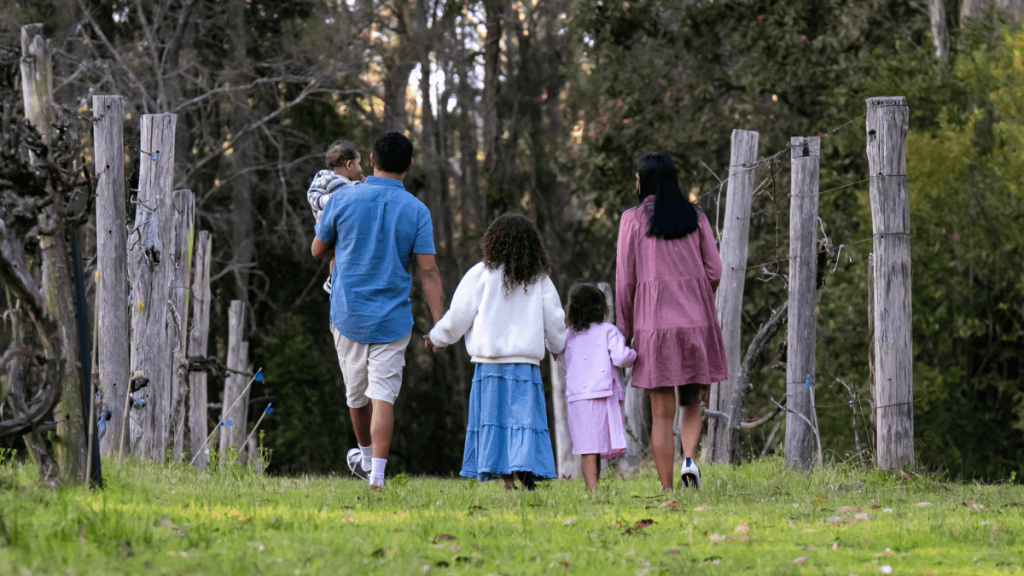Beyond Boomers: Australia’s Generational Fault Line

For a long time, in Australian public discourse, two generational stereotypes have predominated: the purportedly impoverished Millennials and the ostentatiously wealthy Baby Boomers. With the increasing volume and complexity of public discourse, however, it is clear that this binary is much too simplistic. Each generation—Gen X, Gen Z, and the upcoming Alpha—is defined by its own set of experiences, beliefs, and economic realities; these generations sit between the Boomers and the Millennials.
This tug-of-war between generations is fueled by debates around climate change, digital literacy, climate change, superannuation, affordable housing, and political involvement. Not only do these reflect different points of view, but they also underscore the growing gap between generations, which Australia just cannot ignore.
The Generational Breakdown in Australia

Let’s start by understanding who’s who in the landscape of Australian generations:
- Baby Boomers: Born 1946–1964
- Generation X: Born 1965–1980
- Millennials (Gen Y): Born 1981–1996
- Generation Z: Born 1997–2012
- Generation Alpha: Born 2013 onwards
Every group has gone through defining events ranging from the post-war economic boom to the global financial crisis and the emergence of social media. But these encounters have also set the stage for conflict, particularly in relation to cultural norms and economic opportunities.
Housing: The Epicentre of Discontent

Fundamental in nature, housing causes the generational divide Australia is going through. Boomers could at last join the real estate market when median property values were just three to four times average annual income. That figure presently sits in Sydney and Melbourne at nine to twelve times for Millennials and Generation Z.
The contrast has created resentment. While older generations argue younger people merely need to “save more,” or “stop buying avocado toast,” younger Australians feel priced out of the very dream they were raised to believe was accessible.
The chronicle as it is is It’s about structural changes including stagnating salaries, rising living expenses, investor tax benefits, and a planning system unable to meet demand. Once a natural occurrence, home ownership today feels like an unattainable dream for many.
Superannuation and Retirement

Superannuation represents still another fault line. Boomers and some Gen Xers are retiring with great super accounts and property wealth. Negotiating gig economy employment, casualized labor, and frequent career changes—all of which throw off ongoing super contributions—Millennials and Gen Z are
Younger workers of today are anticipated to be compelled to work far into their 70s or rely more on a public pension that might not be able to cover future cost-of-living needs. Calls for reform of superannuation are now received with opposing conceptions of what is fair: either preserve the fortunes of older Australians or restructure the system to offer a more fair future.
Climate Change: A Collision of Priorities

Perhaps in the debate over climate change, the generational divide is at its most emotionally charged. Generation Z and younger Australians see climate change not as an abstract but as an immediate and deadly danger. As a generation, they have witnessed the sky being blackened by bushfires, the Great Barrier Reef’s coral bleaching, and the increasing frequency of natural disasters.
Contrarily, it is common to falsely characterize older generations as indifferent or even antagonistic toward climate change, particularly when policies threaten their financial security or long-standing companies. This isn’t necessarily the case, but when it is, it adds fuel to the fire of dissatisfaction and distrust between generations.
Even in politics, younger voters tend to support environmentalist parties, whilst older voters tend to support conservative or economically-oriented parties.
Work and Identity
From one generation to the next, the nature of work in Australia has changed dramatically. Generation X and the Baby Boomers tended to stick to more traditional professional paths, sometimes staying in the same industry for many years. However, in today’s gig economy, freelancing, side gigs, and portfolio careers are the norm for millennials and Gen Z.
The degree to which one’s identity is bound up with their job is just one area that this shift has altered, along with one’s financial security. For some older Australians, the values held by the younger generation—a work-life balance, flexibility, and a sense of purpose—can come across as naive or even entitled.
This is still not a sloth, though. Change is the key. With burnout on the rise and job stability on the decline, younger workers are reimagining success as wellness, freedom, and value alignment rather than a corner office and a mortgage.
Technology and Communication Gaps
Another concern is the level of computer knowledge. Phones were practically an integral part of life for members of Generation Z and Millennials. People from Generation Y adapted to modern technology with ease. Not only were members of Generation X the first to use email, but they also continue to feel left out by the rate of change.
This technological disparity impacts every facet of life, from civic engagement to employment performance. False information can spread rapidly on Facebook, for instance, due to the large number of senior users. Meanwhile, younger Australians are increasingly turning to Instagram and TikTok as sources for news and activist messaging.
Problems with communication within families and society at large can arise from the fact that different generations inhabit distinct online environments.
Political Engagement and Disillusionment
The wealth and voting power of the baby boomer generation have long had an impact on Australian politics. However, the younger generations are becoming more and more skeptical of conventional party politics. Many people feel that their worries about climate change, housing, and schools are being ignored.
Support for minor parties and independents has increased in recent elections, especially among younger Australians. Not indifference, but a quest for fresh, accommodating political representation, is what this change signifies.
It remains to be seen if the political elite of Australia can unite across these differences before the disappointment turns into apathy.
Education and Opportunity
Education was once considered the great equaliser — a passport to upward mobility. But today, many Millennials and Gen Z Australians feel let down by a system that promised a lot and delivered limited returns.
University degrees now come with large debts, and vocational training — once a robust pathway — has been underfunded and underpromoted. As automation and AI reshape the job market, many young Australians feel unprepared, and older generations may underestimate the pressure this adds.
Revitalising vocational training, reimagining tertiary education, and making lifelong learning a priority will be key in ensuring Australian generations are equipped for a future that looks vastly different from the past.
Intergenerational Wealth Transfer: A Ticking Time Bomb?
Australia is set to undergo the largest wealth transfer in its history as Boomers pass on their assets — mainly property — to their heirs. For some Millennials and Gen Z, this will be a windfall. But many others, especially those without family wealth, will continue to face inequality.
The risk is that Australia could become more of a “hereditary economy,” where success is determined not by hard work, but by the luck of birth. The implications for social cohesion are profound — especially in a nation that prides itself on the fair go.
Some economists argue for policies such as inheritance taxes or housing equity reform to level the playing field, but these ideas remain politically controversial.
Bridging the Divide: Can We Find Common Ground?
While it’s tempting to pit one generation against another, this narrative is ultimately unhelpful. Intergenerational tensions, while real, can be bridged with understanding and policy reform.
Here are some key areas where consensus could emerge:
- Housing policies that increase supply, reduce speculative demand, and support renters
- Climate strategies that acknowledge economic concerns while prioritising sustainability
- Education and training reform that equips all Australians for future work
- Superannuation and tax reform that balances fairness with long-term sustainability
Mental health services targeted at young Australians under growing pressure
Beyond policy, though, we need empathy. Boomers did not create today’s challenges alone, and Millennials and Gen Z are not universally victims or idealists. Generational identities are real, but they’re not totalising.
Looking Forward
Instead of pointing fingers, Australian generations would be better served by working together to adapt to a dynamic and unpredictable world. Boomers have a lot of wealth, power, and expertise. Generation Y has new ideas, tech skills, and a strong desire to make a difference.
Recognizing that no group can succeed in isolation, Australia must reject the allure of divisive language in favor of policies and dialogues that transcend generations.
Ultimately, no one generation owns the future. It is ours to keep.






